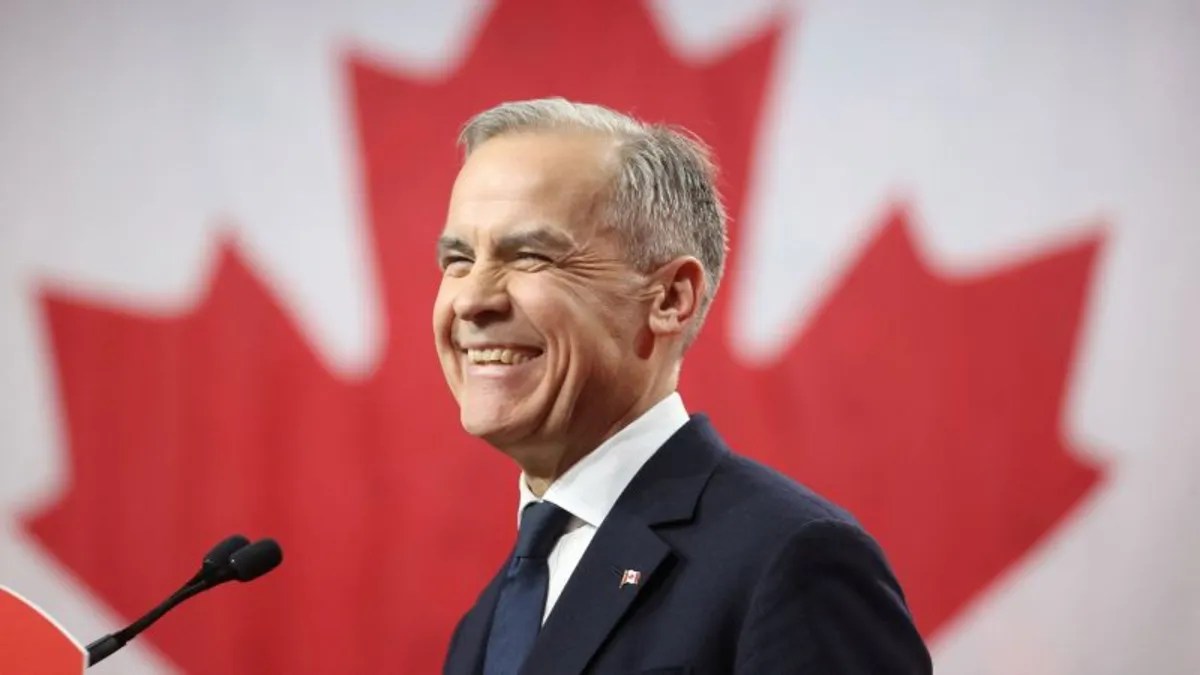
In a pivotal and high-stakes election, Mark Carney has been elected as the new leader of Canada’s Liberal Party, succeeding Justin Trudeau. This leadership change comes at a crucial time, as Carney prepares to lead the party into the upcoming federal elections, which are mandated to occur before October but could be called earlier. The Conservative Party, currently leading in the polls, poses a significant challenge.
While Carney assumes the role of Liberal Party leader immediately, Trudeau will continue to serve as Canada’s Prime Minister during a transitional period, the length of which has not been disclosed. One of Carney's foremost challenges will be addressing the increasingly strained relations with the United States, particularly under the administration of President Donald Trump.
Trump has repeatedly criticized Canada, blaming it for issues such as illegal immigration and threatening to impose steep tariffs on Canadian imports. In response to these challenges, Carney emphasized the need to "create new trading relationships with reliable trading partners," vowing to maintain retaliatory tariffs against the US until Canada receives the respect it deserves. "New threats demand new ideas and a new plan," Carney stated during his remarks at the Liberal Party convention.
Carney's comments reflect the deep-seated frustrations many Canadians feel about the current state of US-Canada relations. His statement that “In trade as in hockey, Canada will win” resonated with many, as the tension has even reached sports events, where fans at NHL and NBA games have booed the US national anthem.
Facing Carney will be Conservative leader Pierre Poilievre, who has been compared to Trump but is now attempting to distance himself from the American leader. At a recent rally, Poilievre criticized Carney, suggesting his leadership experience as a former governor of both the Bank of England and the Bank of Canada has not prepared him to handle the challenges posed by Trump. He stated, “Working for Trudeau, Carney made Canada weaker and poorer; working for himself Carney made the United States richer and stronger.”
In response, Carney defended his record and criticized Poilievre's approach, stating, “Donald Trump thinks he can weaken us with his plan to divide and conquer. Pierre Poilievre’s plan will leave us divided and ready to be conquered.”
Recent weeks have seen the Conservative Party's lead diminish as Trudeau, Carney, and other Liberal figures have taken strong stances on the ongoing trade disputes with the US. Trudeau's long tenure as party leader has seen him navigate numerous challenges, including economic discontent and the resignation of his deputy prime minister and finance minister, Chrystia Freeland, who was also a contender for the leadership position.
In his final remarks as Liberal leader, Trudeau warned that Canadians face an “existential challenge” from the US, describing the current moment as “a nation-defining moment.” He emphasized the need for unity and resilience as the country navigates these challenges.
Carney, who began his career in finance, previously served as the UN Special Envoy for Climate Action and Finance starting in 2019. He has focused on clean energy and economic prosperity as central themes of his campaign. His experience during the 2008 financial crisis and his navigation of Britain’s economy through Brexit have shaped his approach to leadership.
With a focus on leveraging Canada’s natural resources, particularly critical minerals, Carney aims to position Canada as a leader in clean energy. He proposes shifting the financial burden of the carbon tax from consumers to large corporations, replacing the current tax on fuel with incentives designed to reduce carbon emissions.
Carney has not shied away from discussing how to tackle the Trump administration's policies. Following the announcement of US tariffs, he has advocated for equal retaliatory tariffs, asserting that they would impact the US more significantly than Canada. Carney expressed his offense at the Trump administration's accusations regarding fentanyl trafficking, affirming Canada’s pride and independence as a nation.
As Mark Carney steps into his new role, all eyes will be on how he addresses these pressing issues and prepares the Liberal Party for the challenges ahead, particularly the upcoming federal elections.